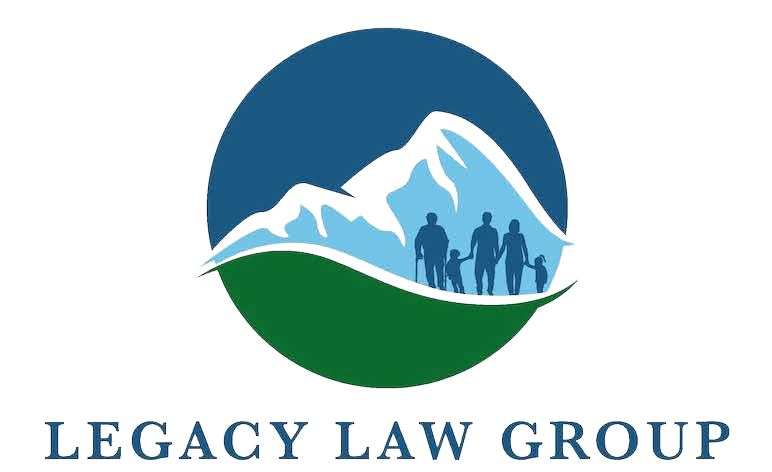TRUST & ESTATE ADMINISTRATION
OR PROBATE AFTER THE DEATH OF A LOVED ONE
When a loved one dies it can be a confusing time in which you are in immense grief while also needing to make sure you handle all the technical details of locating assets, paying bills and making sure your loved one’s assets get to the right people, without conflict. We are here to help.Whether your loved one created a trust to hold their assets, or did not, he or she did have assets (called the estate of the deceased) that must be handled with careful attention and it’s critical that you work with the Legacy Law Group who can help you to do the right thing, minimize conflict and ensure the smoothest possible transition of assets.

HOW DOES TRUST ADMINISTRATION WORK?
When someone creates a trust as part of their estate plan, they must name a trustee to ensure the trust’s terms are handled properly. These individuals must carry out all of the trust’s instructions, and they’re legally responsible for doing so within the scope of federal and state law. Such duties are known as trust administration.
Serving in this capacity entails a huge level of responsibility and liability. What’s more, most people named as trustee will have limited, if any, background or experience in the legal and financial duties that come with administering a trust. In this case, the trust administration lawyers at Legacy Law Group can work with the trustee to ensure the trust is administered properly and all legal requirements are satisfied.
If there is not a trust or if not all assets have been properly titled in the name of a trust that was created, we can help your family through the process of estate administration, usually requiring a court process, called probate. If you are a beneficiary of an estate, or an executor or trustee, contact us for support in handling the transition of your loved ones assets as easily as possible.
WHO DO WE HELP?
We work closely with the family, beneficiaries, and other advisors to ensure the decedent’s trust assets are collected, debts are paid, and the remaining assets are distributed to the named trust beneficiaries, or to the heirs of the estate. Depending on the type of trust involved, assets may be distributed outright to the named beneficiaries, or they might be held in trust for the future benefit of the named beneficiaries. If there is no trust, assets will either be distributed outright to heirs named in a will, or by statute, or held by a guardian named by the court until an heir reaches the age of majority.
During this time, we may also need to have appraisals of major assets completed in order to get a clear picture of what the decedent’s net worth was for estate tax purposes. Additionally, the title of trustor other estate assets may need to be changed to indicate new ownership by the named beneficiary outright or under a continuing trust. Our trust and estate administration lawyers will transfer assets as quickly and smoothly as possible, resolve outstanding issues, and ensure that everything occurs within the applicable legal deadlines.
READY TO START?
TRUST AND ESTATE ADMINISTRATION SERVICES
We can accomplish the following duties without unnecessary delay and with utmost respect for your personal privacy and your family relationships.
- Identification, collection, and determination of values of assets
- Payment of all debts, expenses, and taxes from estate and trust assets, with submission of regular accountings
- Advice as to disposition of jointly held assets, life insurance, and retirement benefits that pass outside a will or trust
- Preparation of state and federal, gift, generation-skipping transfer, and gift tax returns
- Notifying all heirs and beneficiaries of the trust or estate
- Communicating with beneficiaries

WE ARE HERE FOR YOU
Our primary objective is to make this process as easy as possible for you, and minimize the impact of going to court, while also keeping your family out of conflict.
No matter how complex the trust or estate administration process may be, the trust and estate administration lawyers atLegacy Law Group will guide you every step of the way. We’ll work closely with personal representatives, executors, beneficiaries, and other fiduciaries to ensure the terms of the trust are carried out properly. At the same time, we’ll make the process as understandable and stress-free as possible for the trustee.
WHAT IS A REVOCABLE
LIVING TRUST?
This is an agreement with three parties: the Trust-makers, the Trustees (or Trust Managers), and the Trust Beneficiaries. For example, a husband and wife may name themselves all three parties to create their trust, manage all the assets transferred to the trust, and have full use and enjoyment of all the trust assets as beneficiaries. Further “back-up” managers can step in under the terms of the trust to manage the assets should the couple become incapacitated or die. Special provisions in the trust also control the management and distribution of assets to heirs in the event of the trust maker’s death. With proper planning, the couple also can avoid or eliminate death taxes on their estate. The Revocable Living Trust may allow them to accomplish all this outside of any court proceedings.
Whether you are young or old, rich or poor, married or single, if you own titled assets such as a house and want your loved ones to avoid court interference at your death or incapacity, consider a revocable living trust. A trust allows you to bring all of your assets together under one plan.
WHAT IS A LIVING WILL?
Sometimes called an Advance Medical Directive, a living will allows you to state your wishes in advance regarding what types of medical life support measures you prefer to have, or have withheld/withdrawn if you are in a terminal condition (without reasonable hope of recovery) and cannot express our wishes yourself. Oftentimes a living will is executed along with a Durable Power of Attorney for Health care, which gives someone legal authority to make your health care decisions when you are unable to do so yourself.
What does Intestacy mean?
If you die without even a Will (intestate), the legislature of your state has already determined who will inherit our assets and when they will inherit them. You may not agree with their plan, but roughly 70 percent of Americans currently use it.
WHAT IS A WILL?
The document a person signs to provide for the orderly disposition of assets after death. Wills do not avoid probate. Wills have no legal authority until the willmaker dies and the original will is delivered to the Probate Court. Still, everyone with minor children needs a will. It is the only way to appoint the new “parent” of an orphaned child. Special testamentary trust provisions in a will can provide for the management and distribution of assets for your heirs. Additionally. assets can be arranged and coordinated with provisions of the testamentary trusts to avoid death taxes.
HOW ARE WE DIFFERENT?
At Legacy Law Group, we believe in building lasting relationships with our clients. That’s why we offer a free assessment of your current estate plan every 3 years. Our commitment of keeping your plan up-to-date assures that it aligns with your evolving needs and circumstances, providing you with ongoing peace of mind.
WHAT IS INCLUDED IN AN ESTATE PLAN?
Legacy Law Group offers three levels of planning to suit your varying needs, and you get to choose the level of planning that best fits your family. From starter plans designed primarily for families with young children and not yet much in the way of financial wealth, to more robust plans for well-established families concerned with matters of asset protection, preservation and increased growth, we have you covered. When we meet for your Family Wealth Planning Session, we will review our three planning levels with you, and you will choose our own fee based on your budget and the planning options that are most important to you and your family.
WHAT IS THE DIFFERENCE BETWEEN A
WILL & A TRUST?
Wills and trusts are two of the most commonly used estate planning documents, and they form the foundation of most estate plans. While both documents are legal vehicles designed to distribute your assets to your loved ones upon your death, the way in which they work is quite different
Read these valuable reports
Seven Must Do's When Naming Guardians<

The Special Needs Freedom Guide

Six Mistakes When Choosing An Attorney

REACH OUT TO OUR TEAM

Learn More About Anastasia
Anastasia FainbergAttorney at Law













